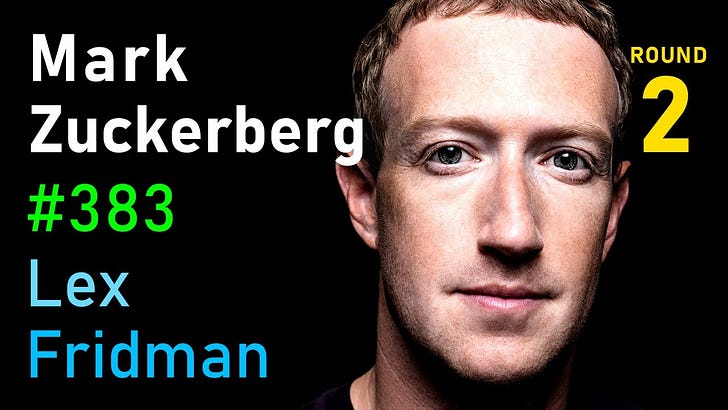Mark Zuckerberg Discusses the Future of AI and the Importance of Martial Arts
Open Source Advancements, Language Translation, and the Delicate Balance of AI Moderation
Facebook CEO Mark Zuckerberg is not one to shy away from a mental and physical challenge. Beyond building one of the largest social media empires, Zuckerberg has embraced Brazilian jiu-jitsu (BJJ), even participating in a recent tournament. Much like the humbling and strategic nature of BJJ, the development of artificial intelligence (AI) has presented significant challenges and rewards. In the latest Lex Fridman Podcast, Zuckerberg discusses his own BJJ journey and how it relates to the work he's doing at Meta, the parent company of Facebook, Instagram, and WhatsApp.
AI Advancements - The Development and Release of Llama
One of the key topics covered in the podcast is the recent development by Meta of "Llama", a powerful 65-billion-parameter AI model. With Llama, Meta has not only advanced the capabilities of AI and machine learning, but also embarked on a journey to open source the model for the broader research and development community.
Open sourcing AI models has become a critical component in the ongoing development and understanding of AI systems. By releasing models such as Llama, Meta is fostering a vibrant ecosystem of developers that can build on top of and enhance these technologies, ultimately creating a more efficient and safe AI future.
Breaking Language Barriers and Enhancing Communication
One of the key advancements with Llama is the ability to translate languages more effectively than ever before. With more than 4,000 spoken languages worldwide, breaking down these barriers and allowing for seamless communication is a remarkable feat. The promise of real-time translation brings us one step closer to a world where language is no longer an obstacle to collaboration and understanding.
Achieving AI Alignment and Prioritizing Safety
As AI models continue to grow in size and capabilities, achieving alignment with human values and ensuring the safety of these systems becomes paramount. The open-source approach taken by Meta addresses many safety concerns by allowing a broad spectrum of experts to review and improve upon the model. This stands in contrast to keeping AI development behind closed doors, which could limit oversight and potentially introduce greater risks.
Applications for AI in Meta's Platforms
Zuckerberg outlined three main categories in which AI can be implemented across Meta's platforms: digital assistants, creator AI proxies, and AI applications for businesses. Each category presents unique challenges and opportunities, but the priority remains the same - ensuring AI is developed in a way that benefits and aligns with human values. Personalization, natural language interfaces, and the potential for users to have AI-driven social connections all contribute to Meta's vision for the future of AI integration.
AI and the Tenuous Dance with Freedom of Speech
The podcast also delved into the difficult balance between preventing harm and preserving free speech when it comes to AI moderation and information control. Determining what constitutes harmful content and how to flag it is a challenge, and the use of AI can be a double-edged sword in this context. Nevertheless, Zuckerberg asserts his commitment to supporting freedom of expression while also being mindful of community health.
Final Thoughts
Mark Zuckerberg's passion for both jiu-jitsu and AI underscores his commitment to pushing boundaries, seeking innovative solutions, and tackling the unique challenges that arise. Intelligence and autonomy as separate concepts are key considerations in AI development, with open source approaches yielding powerful tools and improved safety. The global potential for AI to foster communication and align with human values is enormous, and Mark's dedication to this pursuit, both inside and outside the ring, is evident through his leadership at Meta.
Find the full episode linked below:




